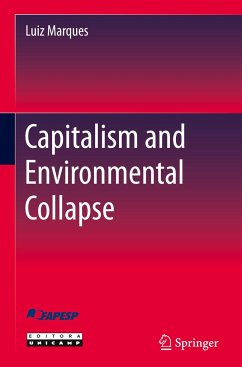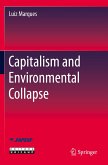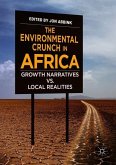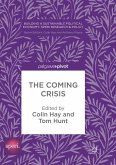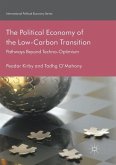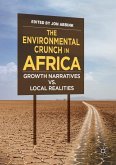This book intends to be an alert to the fact that the curve measuring environmental costs against the economic benefits of capitalism has irreversibly entered into a negative phase. The prospect of an environmental collapse has been evidenced by the sciences and the humanities since the 1960s. Today, it imposes its urgency. This collapse differs from past civilizations in that it is neither local nor just civilizational. It is global and occurs at the broadest level of the biosphere, accelerated by the convergence of different socio-environmental crises, such as:
Earth energy imbalance, climate change and global warming
Sea-level riseDecrease and degradation of forestsCollapse of terrestrial and aquatic biodiversityFloods, droughts, wildfires, and extreme weather events Degradation of soils and water resourcesIncrease in pollution caused by fossil fuels and coal Increase in waste production and industrial intoxicationThe book is divided in two parts. In the first part it presents a comprehensive review of scientific data to show the already visible effects of each of the different environmental crises and its consequences to human life on Earth. In the second part, Luiz Marques critically discusses what he calls the three concentric illusions that prevent us from realizing the gravity of the current socio-environmental crises: the illusion of a sustainable capitalism, the illusion that economic growth is still capable of providing more well-being and the anthropocentric illusion.
Finally, Marques argues that "fitting" back into the biosphere will only be possible if we dismantle the expansive socioeconomic gear that has shaped our societies since the 16th century by moving from a Social Contract to a Natural Contract, which takes into account the whole biosphere. According to him, the future society will be post-capitalist or it will not be a complex society, and even perhaps, we must fear, no society at all.
"This book is backed up with the latest and best science and has made the complexities understandable for the average reader, all in a context of hope for the future." - William J. Ripple, PhD, Distinguished Professor of Ecology, Director of the Alliance of World Scientists, Oregon State University
Earth energy imbalance, climate change and global warming
Sea-level riseDecrease and degradation of forestsCollapse of terrestrial and aquatic biodiversityFloods, droughts, wildfires, and extreme weather events Degradation of soils and water resourcesIncrease in pollution caused by fossil fuels and coal Increase in waste production and industrial intoxicationThe book is divided in two parts. In the first part it presents a comprehensive review of scientific data to show the already visible effects of each of the different environmental crises and its consequences to human life on Earth. In the second part, Luiz Marques critically discusses what he calls the three concentric illusions that prevent us from realizing the gravity of the current socio-environmental crises: the illusion of a sustainable capitalism, the illusion that economic growth is still capable of providing more well-being and the anthropocentric illusion.
Finally, Marques argues that "fitting" back into the biosphere will only be possible if we dismantle the expansive socioeconomic gear that has shaped our societies since the 16th century by moving from a Social Contract to a Natural Contract, which takes into account the whole biosphere. According to him, the future society will be post-capitalist or it will not be a complex society, and even perhaps, we must fear, no society at all.
"This book is backed up with the latest and best science and has made the complexities understandable for the average reader, all in a context of hope for the future." - William J. Ripple, PhD, Distinguished Professor of Ecology, Director of the Alliance of World Scientists, Oregon State University

